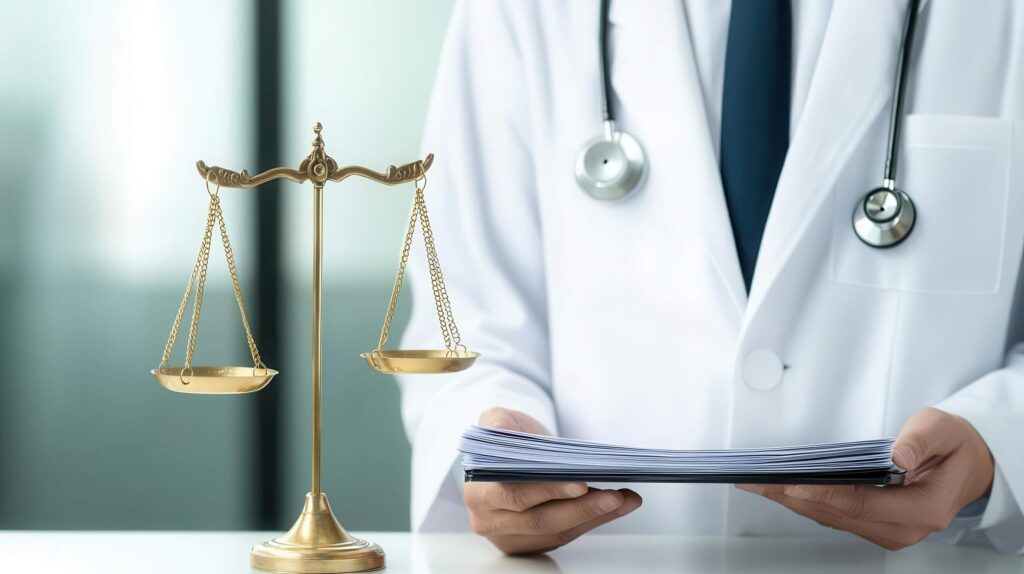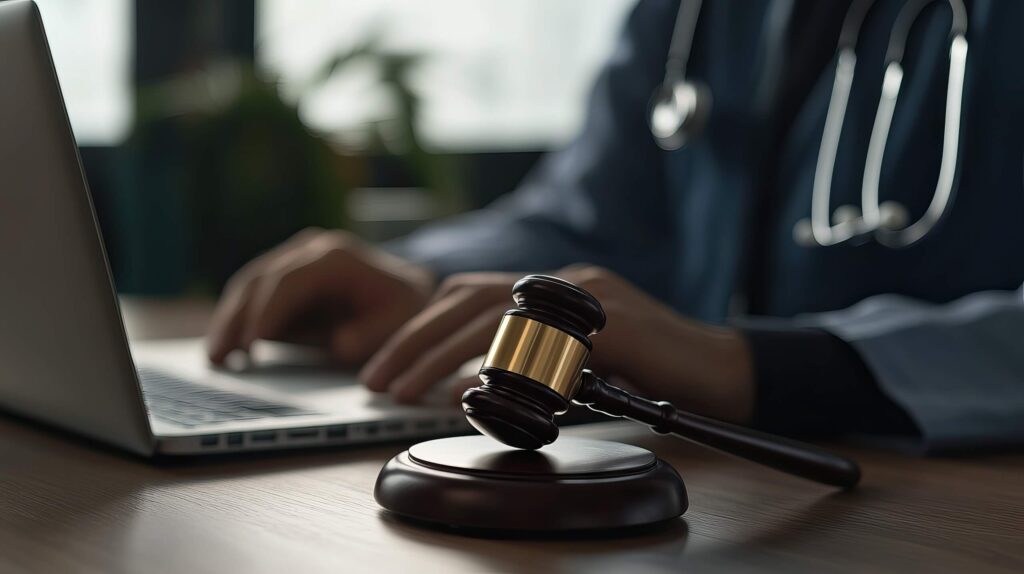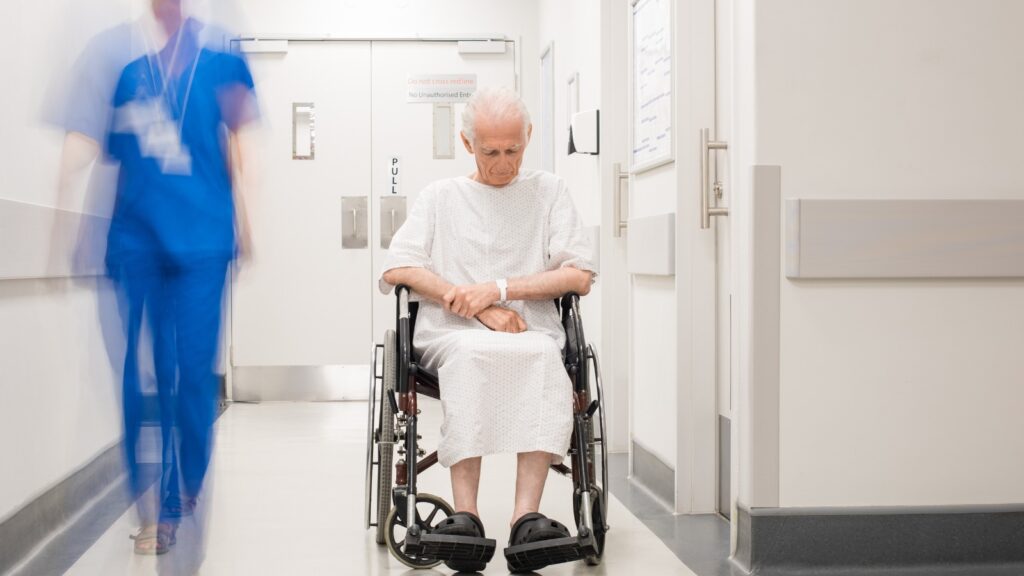Medical malpractice lawsuits can be complex, costly, and emotionally challenging for both patients and healthcare providers. In Pennsylvania, the state’s apology law was introduced to encourage open communication between doctors and patients while also providing legal protection to physicians.
This law allows doctors to express sympathy and regret following a medical error without fear that their words will be used against them in a malpractice lawsuit. However, there are important limitations to this protection, and healthcare professionals must understand the distinction between expressing compassion and making statements that could be interpreted as admissions of fault.
Understanding Pennsylvania’s apology law is essential for physicians who want to communicate openly with their patients while minimizing their liability risks. This article explores the law, its impact on malpractice cases, and how healthcare providers can navigate it safely to foster patient trust while reducing the chances of litigation.
What Is Pennsylvania’s Apology Law?
The Purpose of the Law
Pennsylvania’s apology law, formally known as the Benevolent Gesture Medical Professional Liability Act, was passed to encourage transparency in the medical profession. It allows healthcare providers to offer condolences or expressions of sympathy to patients and their families without those statements being admissible as evidence in court.
The law is designed to prevent situations where a simple expression of regret is misconstrued as an admission of fault, which could lead to a lawsuit.
What Types of Apologies Are Protected?
Not all apologies are treated the same under Pennsylvania’s apology law.
- Protected Statements: Expressions of sympathy, concern, or regret, such as “I’m very sorry this happened.”
- Not Protected Statements: Admissions of fault, such as “I made a mistake during your procedure.”
How the Law Affects Doctor-Patient Communication
The law aims to strike a balance between allowing doctors to maintain compassionate relationships with patients while preventing statements that could be misinterpreted as admissions of liability in court.
Legal Protections for Physicians Under the Law
How the Law Benefits Doctors
The primary legal benefit of Pennsylvania’s apology law is that it allows physicians to express concern and remorse without increasing their risk of being sued. Many doctors fear that acknowledging a medical error will expose them to liability, so they often remain silent—even when they genuinely feel regret.
What the Law Covers
The law protects healthcare providers by ensuring that statements of sympathy or regret cannot be used as direct evidence in a malpractice case.
Physicians can express concern for a patient’s well-being without their words being used against them in court. Hospitals can implement apology policies without exposing doctors to additional legal risks.
Limitations of the Law
- Despite these protections, the law does not provide absolute immunity.
- If a physician’s statement includes an explicit admission of negligence, it may still be used as evidence in a lawsuit.
- Medical records and documentation can still serve as proof of malpractice, even if an apology is protected.
- If an apology is followed by conflicting evidence of negligence, juries may still interpret the apology negatively.
- Understanding these limitations is crucial for doctors who want to communicate compassionately without increasing their legal exposure.
Impact of Apology Laws on Malpractice Litigation
Do Apology Laws Reduce Lawsuits?
The relationship between apology laws and malpractice lawsuits has been widely debated. Some studies suggest that apology laws contribute to fewer lawsuits, while others show that they have little impact on whether a patient decides to sue.
How Apologies Influence Patient Decisions
Research suggests that patients are less likely to sue when they feel that their doctor has acknowledged their suffering and is being honest.
- Patients who feel their doctor is genuine and transparent may be less likely to pursue legal action.
- Patients who feel ignored or dismissed are more likely to file a lawsuit, regardless of whether an apology was offered.
Case Study: A Pennsylvania Hospital’s Apology Policy
A study conducted at a Pennsylvania hospital found that implementing an official apology policy resulted in a 20% decrease in malpractice claims over five years.
This suggests that when doctors are given the ability to express remorse in a legally protected way, it can lead to fewer lawsuits and stronger doctor-patient relationships.
Does an Apology Reduce Medical Malpractice Claims?
The Role of the Severity of the Medical Error
The effectiveness of an apology depends on the severity of the error.
- Minor mistakes: A well-delivered apology may be enough to prevent a lawsuit.
- Severe medical errors: Patients may still seek compensation, regardless of whether the doctor has apologized.
How Trust in the Physician Affects the Outcome
If a patient has a strong relationship with their physician, they may be more willing to accept an apology and move on. However, if they already distrust their doctor, an apology may not be enough.
How Legal Representation Can Impact the Decision
Even if a doctor apologizes, a patient’s attorney may still recommend legal action if they believe the case has strong merit.
Patients who consult a malpractice lawyer may be encouraged to pursue a lawsuit, even if they initially felt satisfied with the apology.
How Physicians Can Navigate Apology Laws Safely
Best Practices for Apologizing Without Legal Risk
Doctors who want to express sympathy while minimizing legal risks should follow these guidelines:
- Express sympathy without admitting fault: Instead of saying, “I made a mistake,” say, “I’m very sorry that you’re going through this.”
- Be mindful of documentation: Any statements made should be recorded carefully, as inconsistencies could be used in court.
- Consult legal professionals when in doubt: If a situation is particularly sensitive, doctors should seek legal advice before making a statement.
Frequently Asked Questions About Pennsylvania’s Apology Law
Can doctors apologize without facing legal consequences?
Yes, doctors in Pennsylvania can apologize without automatically increasing their legal risk, as long as their apology does not include an admission of fault. The state’s apology law protects expressions of sympathy, regret, and condolences, ensuring that these statements cannot be used as evidence in a medical malpractice lawsuit. However, if a doctor explicitly states that they made a mistake or were negligent, that statement could be admissible in court.
Does an apology automatically mean admitting fault?
No, an apology does not automatically mean admitting fault. Pennsylvania’s apology law differentiates between general expressions of regret and direct admissions of negligence. A statement such as “I’m sorry this happened” is legally protected and cannot be used as evidence in a malpractice case. However, if a doctor says something like “I made a mistake during the procedure,” that statement could be used against them in court.
How does Pennsylvania’s apology law affect medical malpractice settlements?
Apology laws can have an impact on malpractice settlements by fostering goodwill between doctors and patients. Studies suggest that patients are more likely to accept a reasonable settlement offer and less likely to pursue a lawsuit when a doctor expresses genuine concern. However, in cases of severe medical errors or negligence, an apology alone may not be enough to prevent a patient from seeking financial compensation. The effectiveness of an apology in influencing a settlement often depends on the severity of the harm and the patient’s trust in their physician.
Are there any limitations to Pennsylvania’s apology law?
Yes, Pennsylvania’s apology law has important limitations. While it protects expressions of sympathy and regret, it does not cover statements that admit fault or negligence. If a doctor explicitly acknowledges making a mistake that led to patient harm, that statement may be used as evidence in a malpractice case. Additionally, the law does not prevent lawsuits from being filed; it only limits how certain statements can be used in court. Other forms of evidence, such as medical records and expert testimony, can still be used to establish liability.
Can a doctor’s apology prevent a lawsuit?
In some cases, an apology may help prevent a lawsuit, but it is not a guarantee. Research has shown that patients are more likely to feel satisfied with their care and less likely to sue when their doctor expresses remorse and communicates openly about what happened. However, if a patient believes they have suffered serious harm due to negligence, they may still choose to pursue legal action regardless of whether an apology was given. The decision to file a lawsuit often depends on the severity of the error, the patient’s level of trust in their doctor, and whether they receive legal advice encouraging them to seek compensation.
Contact Purchase, George & Murphey, P.C. Today
Pennsylvania’s apology law is designed to allow doctors to communicate empathy to their patients while protecting them from unnecessary legal risks. By understanding the law’s protections and limitations, physicians can maintain compassionate relationships with their patients while also safeguarding themselves from litigation.
If you’re a healthcare provider and have concerns about how Pennsylvania’s apology law affects you, or if you’re facing a potential malpractice claim, it’s important to seek legal guidance.
Contact Purchase, George & Murphey, P.C. today to ensure your communication with patients is both compassionate and legally sound.














